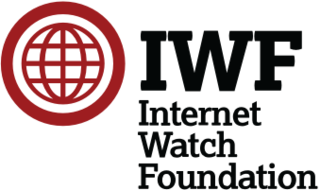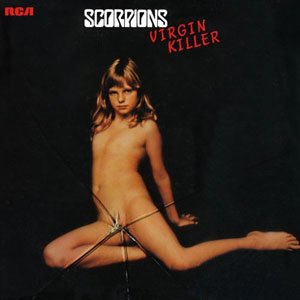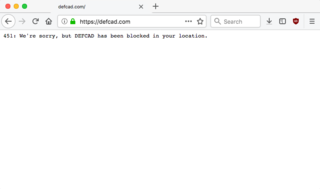Related Research Articles
An Internet filter is software that restricts or controls the content an Internet user is capable to access, especially when utilized to restrict material delivered over the Internet via the Web, Email, or other means. Content-control software determines what content will be available or be blocked.

In computer network communications, the HTTP 404, 404 not found, 404, 404 error, page not found, or file not found error message is a hypertext transfer protocol (HTTP) standard response code, to indicate that the browser was able to communicate with a given server, but the server could not find what was requested. The error may also be used when a server does not wish to disclose whether it has the requested information.
An online service provider (OSP) can, for example, be an Internet service provider, an email provider, a news provider (press), an entertainment provider, a search engine, an e-commerce site, an online banking site, a health site, an official government site, social media, a wiki, or a Usenet newsgroup.
Internet censorship in Australia is enforced by both the country's criminal law as well as voluntarily enacted by internet service providers. The Australian Communications and Media Authority (ACMA) has the power to enforce content restrictions on Internet content hosted within Australia, and maintain a blocklist of overseas websites which is then provided for use in filtering software. The restrictions focus primarily on child pornography, sexual violence, and other illegal activities, compiled as a result of a consumer complaints process.
Cleanfeed is the name given to various privately administered ISP level content filtering systems operating in the United Kingdom and Canada, and as of May 2012 undergoing testing in Australia with a view to future mandatory implementation. These government-mandated programs originally attempted to block access to child pornography and abuse content located outside of the nation operating the filtering system.
Internet censorship in the United Kingdom is conducted under a variety of laws, judicial processes, administrative regulations and voluntary arrangements. It is achieved by blocking access to sites as well as the use of laws that criminalise publication or possession of certain types of material. These include English defamation law, the Copyright law of the United Kingdom, regulations against incitement to terrorism and child pornography.

Internet in the Czech Republic and Internet access are largely provided by the private sector and is available in a variety of forms, using a variety of technologies, at a wide range of speeds and costs. In 2013, 68% of Czechs were connected to the Internet.
Access to the Internet in Azerbaijan is growing, supported by a national strategy to develop the country into an information and communication technology (ICT) hub for the Caucasus region. The Azerbaijani government actively seeks to attract foreign aid to help boost the telecommunications and ICT sectors. While the government claims 85 percent of the population was online in 2013, service provider Baktelekom has provided free Wi-Fi zones in several points of Baku like the National Flag Square, the Boulevard, Old City, the park around the Heyder Aliyev Centre, parks of Sahil, Sabir, Samad Vurghun, Winter Park, as well as Port Baku Residence and Port Baku Mall.

The Internet Watch Foundation (IWF) is a global registered charity based in Cambridge, England. It states that its remit is "to minimise the availability of online sexual abuse content, specifically child sexual abuse images and videos hosted anywhere in the world and non-photographic child sexual abuse images hosted in the UK." Content inciting racial hatred was removed from the IWF's remit after a police website was set up for the purpose in April 2011. The IWF used to also take reports of criminally obscene adult content hosted in the UK. This was removed from the IWF's remit in 2017. As part of its function, the IWF says that it will "supply partners with an accurate and current URL list to enable blocking of child sexual abuse content". It has "an excellent and responsive national Hotline reporting service" for receiving reports from the public. In addition to receiving referrals from the public, its agents also proactively search the open web and deep web to identify child sexual abuse images and videos. It can then ask service providers to take down the websites containing the images or to block them if they fall outside UK jurisdiction.

On 5 December 2008, the Internet Watch Foundation (IWF), a British watchdog group, blacklisted content on the English Wikipedia related to Scorpions' 1976 studio album Virgin Killer, due to the presence of its controversial cover artwork, depicting a young girl posing nude, with a faux shattered-glass effect obscuring her genitalia. The image was deemed to be "potentially illegal content" under English law which forbids the possession or creation of indecent photographs of children. The IWF's blacklist are used in web filtering systems such as Cleanfeed.
Phorm, formerly known as 121Media, was a digital technology company known for its contextual advertising software. Phorm was incorporated in Delaware, United States, but relocated to Singapore as Phorm Corporation (Singapore) Ltd in 2012. Founded in 2002, the company originally distributed programs that were considered spyware, from which they made millions of dollars in revenue. It stopped distributing those programs after complaints from groups in the United States and Canada, and announced it was talking with several United Kingdom Internet service providers (ISPs) to deliver targeted advertising based on the websites that users visited. Phorm partnered with ISPs Oi, Telefonica in Brazil, Romtelecom in Romania, and TTNet in Turkey. In June 2012, Phorm made an unsuccessful attempt to raise £20 million for a 20% stake in its Chinese subsidiary.
Internet censorship in Ireland is a controversial issue with the introduction of a graduated response policy in 2008 followed by an effort to block certain file sharing sites starting in February 2009. Beyond these issues there are no government restrictions on access to the Internet or credible reports that the government monitored e-mail or Internet chat rooms. Individuals and groups could engage in the expression of views via the Internet, including by e-mail. Irish law provides for freedom of speech including for members of the press, and the government generally respects these rights in practice. An independent press, an effective judiciary, and a functioning democratic political system act jointly to ensure freedom of speech and of the press.
Internet censorship in New Zealand refers to the Government of New Zealand's system for filtering website traffic to prevent Internet users from accessing certain selected sites and material. While there are many types of objectionable content under New Zealand law, the filter specifically targets content depicting the sexual abuse or exploitation of children and young persons. The Department of Internal Affairs runs the filtering system, dubbed the Digital Child Exploitation Filtering System (DCEFS). It is voluntary for Internet Service Providers (ISPs) to join.
File sharing in the United Kingdom relates to the distribution of digital media in that country. In 2010, there were over 18.3 million households connected to the Internet in the United Kingdom, with 63% of these having a broadband connection. There are also many public Internet access points such as public libraries and Internet cafes.

British Telecommunications plc v. Prodigy Communications Corp. was a patent infringement case which determined whether a patent related to communications between central computers and their clients was infringed by Internet service providers through hyperlinks. Judge Colleen McMahon of the United States District Court for the Southern District of New York ruled that Prodigy Communications Corporation had not infringed the patent held by British Telecommunications plc through its use of hyperlinks. On summary judgment, McMahon held that there were substantial differences between British Telecommunications' patent and the method of operation of the Internet. The decision limited patent protection for Internet service providers' use of hyperlinks, protecting the providers from licensing fees related to this integral part of Internet technology.

This is a list on countries where at least one internet service provider (ISP) formerly or currently censors the popular file sharing website The Pirate Bay (TPB).

In computer networking, HTTP 451 Unavailable For Legal Reasons is a proposed standard error status code of the HTTP protocol to be displayed when the user requests a resource which cannot be served for legal reasons, such as a web page censored by a government. The number 451 is a reference to Ray Bradbury's 1953 dystopian novel Fahrenheit 451, in which books are outlawed. 451 provides more information than HTTP 403, which is often used for the same purpose. This status code is currently a proposed standard in RFC 7725 but is not yet formally a part of HTTP, as of RFC 9110.
The precise number of websites blocked in the United Kingdom is unknown. Blocking techniques vary from one Internet service provider (ISP) to another with some sites or specific URLs blocked by some ISPs and not others. Websites and services are blocked using a combination of data feeds from private content-control technology companies, government agencies, NGOs, court orders in conjunction with the service administrators who may or may not have the power to unblock, additionally block, appeal or recategorise blocked content.
The child abuse image content list is a list of URLs and image hashes provided by the Internet Watch Foundation to its partners to enable the blocking of child pornography & criminally obscene adult content in the UK and by major international technology companies.